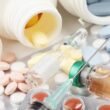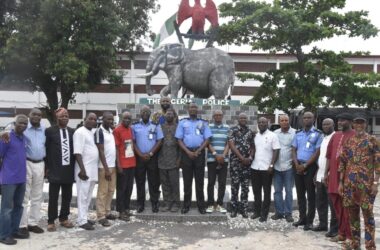A groundbreaking new study has raised serious concerns about the safety of cancer treatment in Africa, revealing that nearly one in six cancer drugs being administered across the continent are substandard or falsified — lacking the critical active ingredients needed to stop or slow disease progression.
The findings, published this week in The Lancet Global Health, are the result of an extensive investigation by a US and pan-African research consortium. The team collected dosage samples — sometimes covertly — from 12 hospitals and 25 pharmacies across Ethiopia, Kenya, Malawi, and Cameroon, testing nearly 200 unique products from various brands.
The results are startling: 17% of the anticancer drugs tested had incorrect levels of active ingredients — some shockingly below required therapeutic standards. This includes drugs dispensed in major hospitals. Patients receiving these underdosed medications risk continued tumor growth, faster disease spread, and ultimately, treatment failure.
“This could lead to treatment failure, adverse reactions, and disease progression,” said health economist Sachiko Ozawa, one of the study’s contributors. “For the community, there’s also economic losses in terms of wasted resources. So countries may be spending a lot of money on medications that are not going to be effective.”
While previous studies have identified similar problems with antibiotics, antimalarial, and tuberculosis medications, this is the first major report to expose such widespread deficiencies in anticancer drugs across Africa.
“I was not surprised by these results,” said Lutz Heide, a pharmacist at the University of Tübingen in Germany, who has spent a decade researching substandard and falsified medicines and previously worked with the Somali Health Ministry. Though not involved in the study, Heide praised the effort: “I was delighted that, finally, someone published such a systemic report. That is a first, really significant systematic study of this area.”
The roots of the problem are complex, according to Marya Lieberman, senior researcher of the study and professor at the University of Notre Dame. She explained that some drugs are poorly manufactured or degrade due to improper storage. Others are outright counterfeits. “There are many possible causes for bad-quality products,” Lieberman told DW. “If you can’t test it, you can’t regulate it.”
Visual inspection — the only method available in many facilities — proves largely ineffective. In fact, only a quarter of the substandard samples in the study were caught visually. The rest were only identified through sophisticated laboratory analysis. “The cancer medications are difficult to handle and analyze because they’re very toxic, and so many labs don’t want to do that,” Lieberman explained. “Even though several of those countries have quite good labs, they don’t have the facilities that are needed for safe handling of the chemo drugs.”
The regulatory gap is vast. Unlike high-income countries, which have tight supply chain oversight and the means to identify and withdraw defective products quickly, many African nations lack the regulatory infrastructure, training, and technology to test or track pharmaceuticals effectively. Patients, often unable to afford or access hospital care, turn to less-regulated markets where quality control is minimal or nonexistent.
“In high-income countries, I think there’s a much more secure supply chain where you know the manufacturers are vetted… it gets tested more frequently,” Ozawa noted.
The World Health Organization (WHO), which reported in 2017 that about 10% of medicines in low- and middle-income countries were substandard or falsified, expressed concern over the study’s revelations. In a statement to DW, the WHO confirmed that it is “in contact with national authorities of the four impacted countries and obtaining relevant data,” and that it is “committed to address these issues working with the relevant countries and partners.”
The WHO also reiterated the importance of strengthening national regulatory frameworks to “prevent incidents of substandard and falsified medicines, including in settings of cancer programs.”
As the study shines a spotlight on the dangerous gaps in pharmaceutical regulation across Africa, experts stress that addressing this crisis will require a coordinated global response — one that ensures vulnerable patients receive effective, life-saving treatments rather than false hope in the form of defective drugs.








